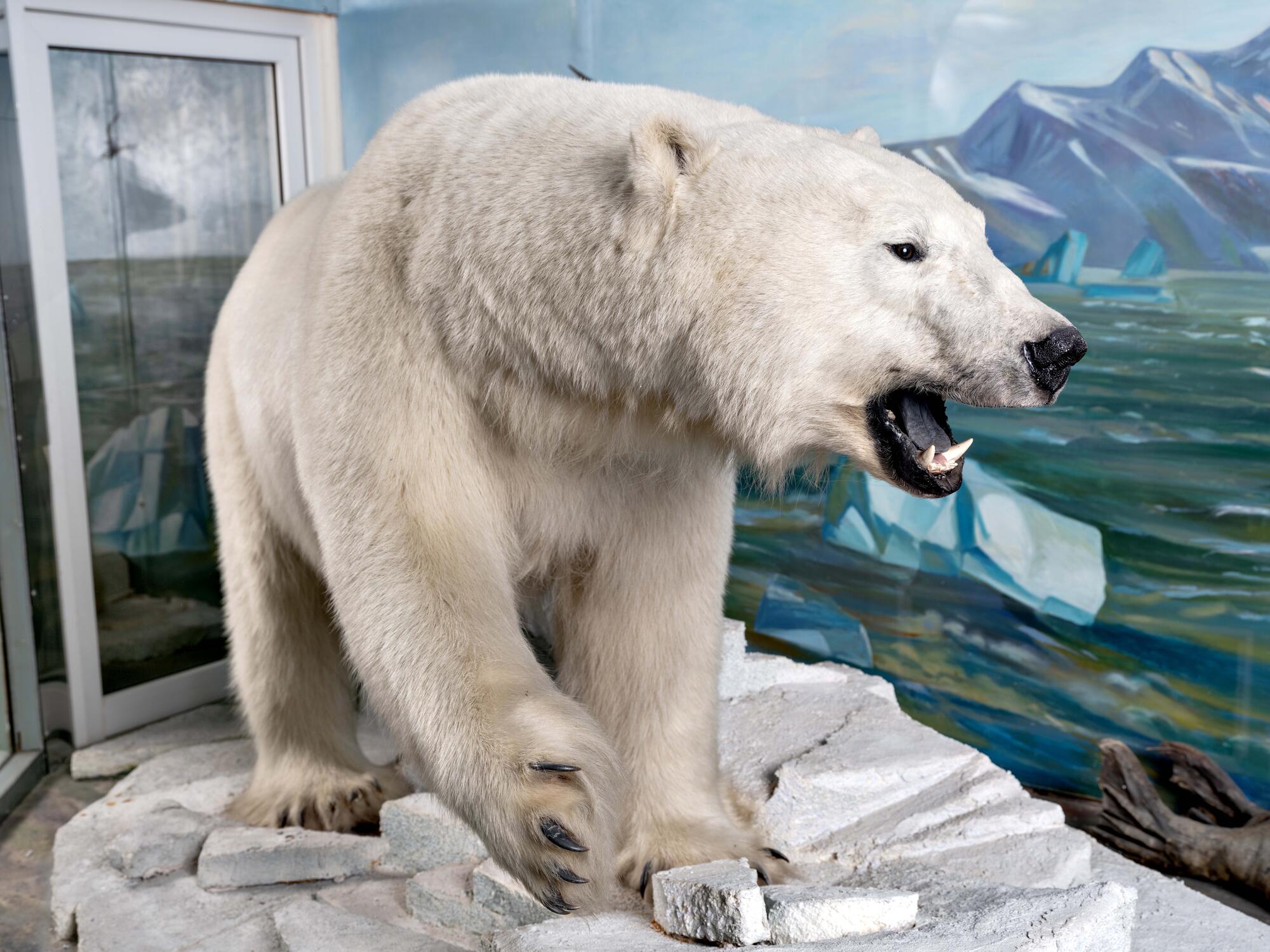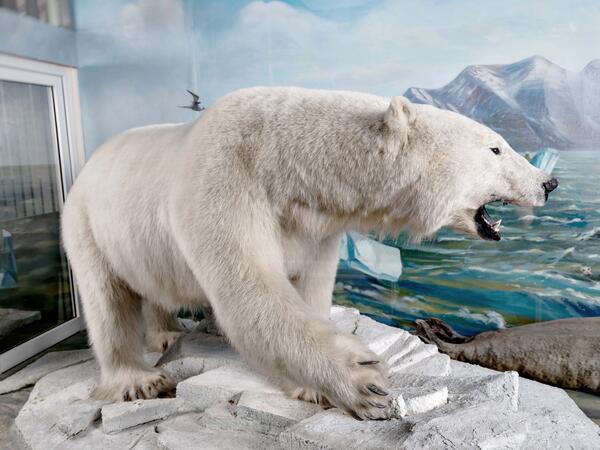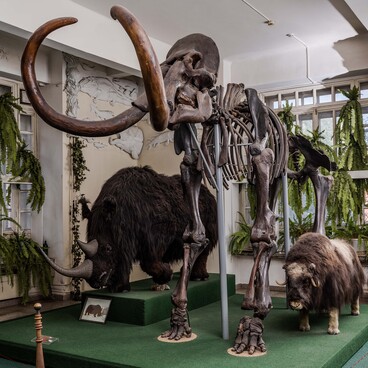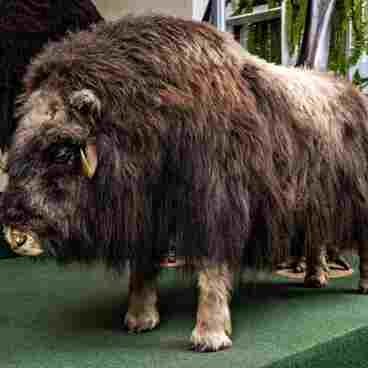The polar bear is the second largest land predator on the planet. It reaches 170 centimeters at the withers and is up to 3.5 meters long. Large males weigh up to 700 kilograms.
In the Krasnoyarsk region polar bears live in the very north — in the Arctic desert, where winter temperatures drop to minus 50 degrees Celsius. The first bears on the planet evolved about 6 million years ago, but it was only 600 thousand years ago that the polar bears diverged from brown bears.
The white bear is not white at all. Its fur varies in color from white to yellowish. In summer, the fur may turn yellow due to constant exposure to sunlight. The polar bear has dense, smooth fur that repels water. The hair is hollow on the inside, and the thick underfur protects the animal from the cold. The polar bear has a layer of subcutaneous fat of up to 10 centimeters.
The paws of the polar bear are covered by dermal bumps at the front, and the pads of the paws are covered with wool, which allows them not to slip on the ice. There is a webbing between the toes to make it easier to paddle. Polar bears have an excellent sense of smell; they can smell their prey even under a meter thick layer of snow.
Bears can walk up to 60 km a day in search of food. They run six times faster than they swim, but they do not always manage to catch their prey — only two times out of a hundred. Bears eat slowly, one meal can last up to half an hour, and they can eat up to 70 kilograms of meat at a time. Each year, the polar bear catches about 50 seals, as well as walruses, seals, bearded seals, and even beluga whales. After eating, bears wash their faces: they can take the snow with their front paws and rub their skin as if with a towel.
A bear has no more than 15 cubs throughout its
life. The cubs are born very small, smaller than human babies — about 30
centimeters long. The weight of a newborn bear cub — about a pound — is similar
to that of a domestic guinea pig. The cubs stay with the mother bear until they
are 1.5 years old, and all this time she feeds them with milk, which smells of
fish. Male bears do not take part in the cubs’ upbringing.



